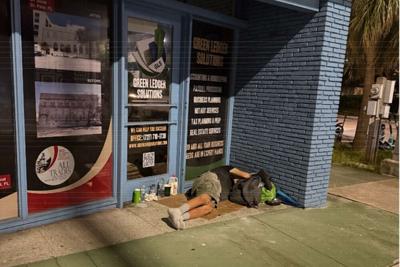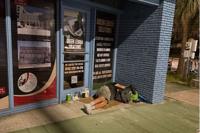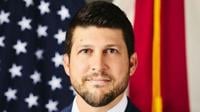
Problems stemming from people sleeping and camping in public have led to a lawsuit being filed against the City of St. Petersburg.
A St. Petersburg restaurant owner is suing the city over its alleged failure to enforce a state law that prohibits local governments from allowing homeless people to sleep or camp on public property.
Ronicca Whaley, who owns the Shiso Crispy restaurant near Williams Park, filed the lawsuit July 25 in the Sixth Judicial Circuit Court in Pinellas County. The complaint alleges that Whaley and her employees have suffered irreparable harm due to the threatening conduct of people who sleep or camp regularly in the park.
“By allowing individuals to regularly sleep and camp in Williams Park and on adjacent sidewalks and alleyways, the city permits atrocious behaviors including: public defecation with human excrement left on sidewalks, urination and masturbation in public view, spitting, misogynistic insults hurled at plaintiff’s female employees, and violent threats, including promises to slit plaintiff’s and her employees’ throats or shoot plaintiff and her staff in the face,” the lawsuit states.
A St. Petersburg spokeswoman said the city does not comment on pending legislation, and Whaley’s attorney did not respond to a request for comment.
The complaint argues that residents and visitors are deterred from visiting the city’s downtown due to the homeless problems there, causing Whaley and other business owners in the area financial harm.
Homelessness in Florida has been a persistent issue, with the number of homeless rising 9% statewide since 2023, according to the lawsuit.
“The city of St. Petersburg's downtown district has been particularly affected,” the complaint says. “In 2023, the number of police calls was 5,598. In 2024, that number jumped to 12,011, and this year the city is on track to receive nearly 20,000 police calls.”
In response to the homelessness issue, Florida lawmakers passed House Bill 1365, which bars a county or city from “authorizing or otherwise allowing” a person to regularly camp or sleep on public property, such as public buildings or public rights-of-way, according to the Legislature’s analysis of the bill.
The measure also allows the local government to designate public property that can be used for sleeping or camping, provided that procedures are in place to assure security and sanitation and to provide for mental health and substance-abuse services. A provision of HB 1365 also allows residents or businesses to file private lawsuits for injunctive relief if a local government is allowing sleeping or camping in public places.
On multiple occasions, the plaintiff has had interactions with homeless people digging through her restaurant’s trash cans and becoming hostile when confronted, the lawsuit states.
“In another instance, (the) plaintiff witnessed an individual emptying his colostomy bag outside one of her restaurants, spilling its contents on the restaurant’s outdoor furniture,” the complaint says.
Whaley says in the lawsuit that other local restaurant owners have been dealing with similar issues. The city has received multiple complaints or letters about the problems in or around Williams Park, but local officials have failed to respond, according to the plaintiff.
“On several occasions, police officers have informed her that there is nothing that can be done, or that they have no ability to remove individuals sleeping in Williams Park or outside her restaurant,” the lawsuit states.
Whaley is asking for an injunction requiring the enforcement of HB 1365 through the removal of people who sleep overnight or camp on public property, as well as court costs and attorney fees.





